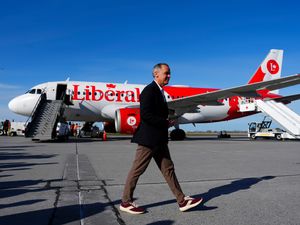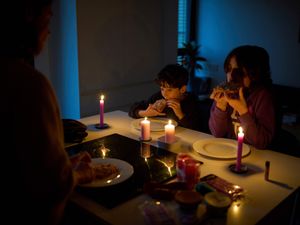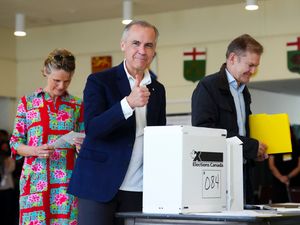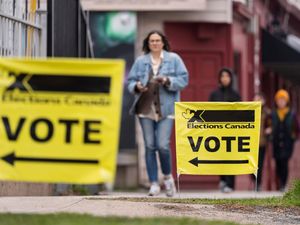Hezbollah fires at Israeli-held border zone in first strike since ceasefire
Lebanon has accused Israel of violating the truce more than 50 times in recent days.
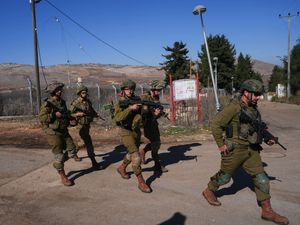
Hezbollah fired into a disputed border zone held by Israel on Monday, the militant group’s first attack since its ceasefire with Israel took hold last week.
It comes after Lebanon accused Israel of violating the truce more than 50 times in recent days.
The Israeli military said two projectiles were launched toward Mount Dov, a disputed Israeli-held territory known as Shebaa Farms in Lebanon, where the borders of Lebanon, Syria, and Israel meet.
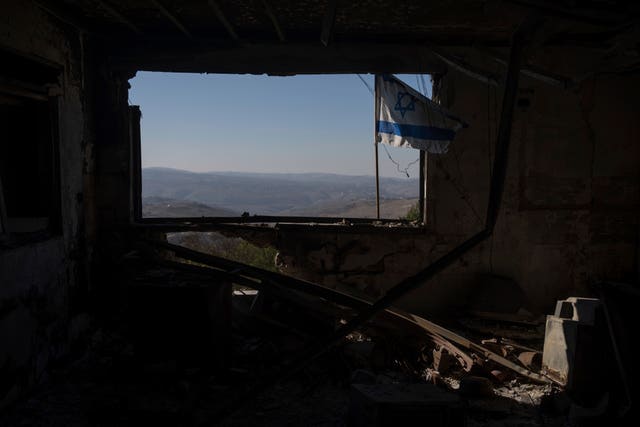
Israel said the projectiles fell in open areas and no injuries were reported.
Hezbollah said in a statement that it fired on an Israeli military position in the area as a “defensive and warning response” after what it called “repeated violations” of the ceasefire deal by Israel.
It said complaints to mediators tasked with monitoring the ceasefire “were futile in stopping these violations”.
The US- and French-brokered ceasefire came into effect on Wednesday calling for a 60-day halt in fighting, aiming to end more than a year of exchanges of fire between Hezbollah and Israel.
Since then, Israel has carried out a number of strikes in Lebanon, most recently on Monday, when a drone strike killed a man on a motorcycle in southern Lebanon and another hit a Lebanese army bulldozer in the north-eastern town of Hermel, wounding a soldier.
The Lebanese army had stayed on the sidelines of the war between Israel and Hezbollah.
Israel says the strikes are in response to Hezbollah’s violations of the ceasefire, without giving specifics.
During the 60-day period, both Israel and Hezbollah are to withdraw from southern Lebanon.
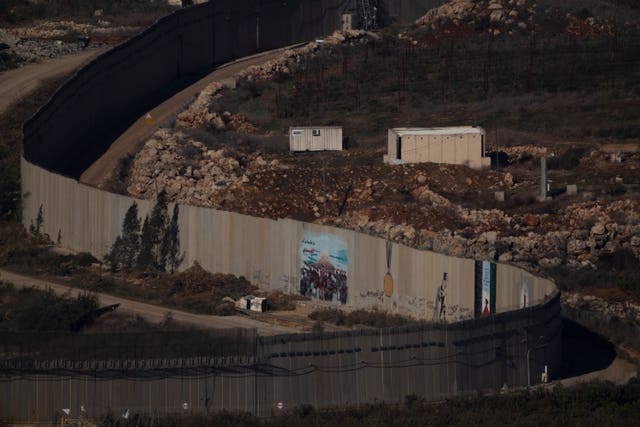
Hezbollah is supposed to pull back north of the Litani River, which is about 30 kilometres from the Israeli-Lebanese border. The site of Monday’s drone strike on the Lebanese army bulldozer was far north of the Litani.
On Saturday, two people were killed in an airstrike in Marjayoun province, Lebanon’s state media said.
Lebanon’s parliament speaker, Nabih Berri, accused Israel on Monday of committing 54 breaches of the ceasefire, including the alleged demolition of homes in border villages, the persistent overflight of Israeli reconnaissance drones, and airstrikes that have caused casualties.
Speaking to the Lebanese newspaper Al Joumhouria, Mr Berri called for urgent intervention to halt what he called “flagrant violations”.
Officials in the United States — which along with France heads a commission meant to monitor adherence to the deal — played down the significance of Israeli strikes.
White House national security spokesman John Kirby said, “Largely speaking, the ceasefire is holding.”
“We’ve gone from dozens of strikes down to one a day maybe two a day,” Mr Kirby said, referring to Israeli strikes.
“We’re going to keep trying and see what we can do to get it down to zero,” he told reporters aboard Air Force One as President Joe Biden made his way for a visit to Angola.
Israel says that it reserves the right under the deal to respond to perceived ceasefire violations.
Israeli Prime Minister Benjamin Netanyahu said the Hezbollah fire was “a serious violation” and vowed that “Israel will respond forcefully”.
Defence Minister Israel Katz said the volley “will be met with a harsh response”.

